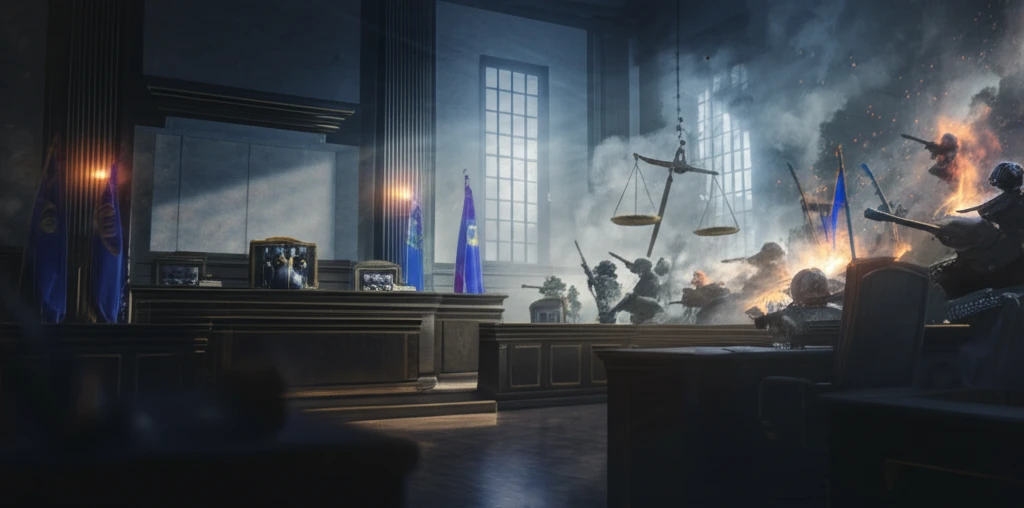
The ICC's Intervention: Reshaping Global Power Dynamics?
"A Deep Dive into How Criminalizing Aggression Could Redefine International Law and Humanitarian Efforts."
For decades, the concept of international criminal prosecutions for acts of aggression seemed like a distant dream. Now, with the activation of the International Criminal Court's (ICC) jurisdiction over such crimes, the reality is quickly setting in. This shift promises to reshape the landscape of international law, particularly concerning the use of force between nations.
The ICC's ability to prosecute those who initiate aggressive military actions is seen by some as a crucial step towards global justice and accountability. By holding individuals responsible for acts of aggression, the court aims to deter future conflicts and promote a more peaceful world order.
However, this new power also raises complex questions and concerns. One of the most pressing is how the ICC's involvement will affect the delicate balance between national sovereignty and international intervention, especially in cases where humanitarian crises demand a response. Will the threat of prosecution discourage legitimate efforts to protect vulnerable populations, or will it lead to a more cautious and considered approach to the use of military force?
The ICC as a Global Gatekeeper

The way the ICC Prosecutor and Pre-Trial Chambers handle cases of aggression will have major implications for how the world interprets and follows the laws governing the use of force. This article will discuss how the ICC's power to address the crime of aggression might impact decisions about intervening for humanitarian reasons and explore how it could change international legal rules about using force.
- The 'chilling effect': The concern that leaders may hesitate to intervene in humanitarian crises due to fear of prosecution.
- Defining aggression: The complexities of determining what constitutes a 'manifest violation' of the UN Charter.
- The 'character' element: How the ICC interprets the 'character, gravity, and scale' of an act of aggression.
- Impact on state sovereignty: Balancing the ICC's jurisdiction with the rights and responsibilities of individual nations.
The Future of Intervention
The activation of the ICC's power is a turning point. Whether it becomes a force for global justice, or creates new challenges, depends on how the court interprets its role. As the ICC navigates these complex issues, its decisions will not only shape the future of international law, but also the lives of countless people around the world.
